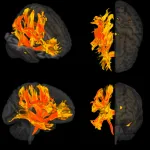(Press-News.org)
Engaging communities in developing a real-time early warning system could help to reduce the often-devastating impact of flooding on people and property – particularly in mountainous regions where extreme water events are a ‘wicked’ problem, a new study reveals
Flash floods are becoming more frequent and damaging to the lives and property of vulnerable people, but researchers believe that using a SMART approach to engage with those living in such areas will help to better signal impending risk from flooding.
Scientists believe that combining meteorological data with information on how people live and work in such regions, will help disaster risk managers, hydrologists, and engineers design better ways of raising the alarm ahead of major floods.
Publishing their findings in Natural Hazards and Earth System Sciences, an international research team led by the University of Birmingham believes that integrating science, policy and local community-led approaches will help to create environmental decisions that better fit the local context.
Co-author Tahmina Yasmin, Postdoctoral Research Fellow at the University of Birmingham, commented: “A ‘wicked’ problem is a social or cultural challenge that's difficult or impossible to solve because of its complex, interconnected nature. We believe that integrating social science and meteorological data will help to identify unknown parts of the puzzle when designing an early warning system.
“Better engaging with communities and analysing social factors identified by the community at risk – for example, illegal settlement beside riverbanks or slums – will help those driving policy to better understand the risks posed by these hydrometeorological extremes and plan flood response and mitigation which provides communities with improved protection.”
The researchers say that using a SMART approach helps policy makers to expose communities’ vulnerability and risk, by using a set of fundamental principles:
Shared understanding of risks ensuring every group of people in a community is represented and a wide range of data collection methods are used.
Monitoring risks and establishing warning systems that build trust and exchange critical risk information - helping to maintain the forecasting system.
Building Awareness through training and capacity development activities which embed understanding of real-time weather and flood alert information.
Indicating pre-planning Response actions on Time with comprehensive disaster management and evacuation plans based on the alert produced by the EWS.
Co-author David Hannah, Professor of Hydrology and UNESCO Chair in Water Sciences at the University of Birmingham, commented: “Developing community trust in government agencies and tech-focused forecasting, whilst using community-led means of gathering information in data-scarce mountainous regions is critical in protecting vulnerable people.
“Using this SMART approach to engage communities in developing inclusive and purposeful early warning systems will undoubtedly help to develop capacity, adaptation, and resilience in the face of more extreme water extremes, such as floods and droughts, and increased uncertainty under global change.”
ENDS
For more information or interviews, please contact Tony Moran, International Communications Manager, University of Birmingham on +44 (0)782 783 2312 or t.moran@bham.ac.uk. Out-of-hours please call +44 (0)121 414 2772.
Notes to Editors
The University of Birmingham is ranked amongst the world’s top 100 institutions, its work brings people from across the world to Birmingham, including researchers and teachers and more than 8,000 international students from over 150 countries.
‘Brief communication: Inclusiveness in designing an early warning system for flood resilience’ - Tahmina Yasmin, Kieran Khamis, Anthony Ross, Subir Sen, Anita Sharma, Debashish Sen, Sumit Sen, Wouter Buytaert, and David M. Hannah is published in Natural Hazards and Earth System Sciences.
Participating institutions include the University of Birmingham; Imperial College London; Indian Institute of Technology Roorkee; and People's Science Institute, Dehradun, India. END
For the first time, researchers have identified specific regions of the brain that are damaged by high blood pressure and may contribute to a decline in mental processes and the development of dementia.
High blood pressure is known to be involved in causing dementia and damage to brain function. The study, which is published in the European Heart Journal [1] today (Tuesday), shows how this happens. It gathered information from a combination of magnetic resonance imaging (MRI) of brains, genetic analyses and observational data from thousands of patients to look at the effect of high blood pressure on cognitive function. The researchers then checked their findings ...
Growing concerns over the potential health effects of exposure to phthalates, a component of many plastics and also known as a plasticizer, have led to a search for safer alternatives. In a new study conducted in cell cultures, researchers found that the chemical acetyl tributyl citrate (ATBC) might not be the best replacement because it appears to interfere with the growth and maintenance of neurons.
“In the past, industries have promptly shifted away from the usage of toxic chemicals only to produce an equally toxic chemical, so this is something we are actively trying to avoid repeating,” said Kyle Sease, a graduate student at Central Washington ...
A new study found that people who are currently suffering or face a high risk of post-traumatic stress disorder show particular patterns in four biomarkers measurable with a simple blood test. The findings suggest these biomarkers could be used to predict a person’s likelihood of developing PTSD, diagnose the disorder or monitor the response to treatment.
PTSD can occur after experiencing or witnessing a traumatic event. It is currently diagnosed based on symptoms such as flashbacks, difficulty sleeping or concentrating, ...
M1 and M2 are activated macrophages that protect our immune system and maintain homeostasis. Interestingly, they are characterized by distinct and opposing phenotypes. M1 macrophages are known for their bactericidal and tumoricidal properties by secreting pro-inflammatory cytokines, while M2 macrophages facilitate immunosuppressive responses and help cancer progression. As such, reprogramming macrophages from M2 to M1 phenotype has been regarded as a significant interest in the view of potential cancer ...
People reveal more personal information when you ask them the same questions a second time – according to new research from the University of East Anglia.
A new study published today reveals how simple repetition can make people over-disclose, and potentially put themselves at risk of identity theft and cyber crime.
The research team say that understanding why people disclose personal data could help inform measures to address the problem.
From subscribing to online newspapers to completing customer surveys, our personal data is being mined continuously; the world’s most valuable resource is no longer oil, but data.
But for consumers who provide their personal ...
In February of this year, Graphene Flagship associated member Graphenest and manufacturing company Hubron International entered a new strategic partnership. Their shared aim is to explore the development and commercialization of graphene-based polymer masterbatch and compounds with unprecedented electromagnetic interference (EMI) shielding performance for electronic enclosures manufacturing.
This new product line will start with a graphene-based thermoplastic suitable to be implemented as a remarkable EMI shielding solution in medium-high and high frequencies (for 5G and beyond).
The agreement brings together Graphenest’s knowledge around graphene ...
A new drug combination for men with advanced prostate cancer has shown sustained increase in survival rates.
The results from the clinical trial of ENZAMET, co-chaired by Professor Christopher Sweeney, Director of the South Australian immunoGENomics Cancer Institute (SAiGENCI) that operates within the University of Adelaide, have been published today in The Lancet Oncology.
For people with metastatic hormone-sensitive prostate cancer, the addition of an androgen receptor blocker with enzalutamide ...
AUGUSTA, Ga. (March 28, 2023) – Cancer that has spread to areas like the lungs can apply the brakes to a natural pathway that should recruit killer T cells directly to where it has metastasized, scientists report.
That newly found strategy used by tumors that have spread — and are consequently more deadly — may help explain why sometimes promising immunotherapies designed to help the immune system kill cancer don’t, says Kebin Liu, PhD, cancer immunologist in the Department of Biochemistry and Molecular Biology at the Medical College of Georgia.
It also may mean an additional therapeutic maneuver is needed to stop some tumors, which ...
FOR IMMEDIATE RELEASE
March 27, 2023
Contact:
Jillian McKoy, jpmckoy@bu.edu
Michael Saunders, msaunder@bu.edu
##
Growing evidence suggests that e-cigarettes may serve as a less harmful alternative to smoking traditional cigarettes, but socioeconomic and racial inequities in cigarette and e-cigarette use are preventing certain populations from reaping these potential health benefits, according to a new study led by Boston University School of Public Health (BUSPH) and the Keck School of Medicine of the University of Southern California (Keck School of Medicine of USC).
Published in the American Journal of Preventive ...
Berkeley — When University of California, Berkeley, entomologist Kipling Will first heard that former Gov. Jerry Brown was hosting field scientists on his Colusa County ranch, he jumped at the chance to hunt for beetles on the property.
“I reached out and said, ‘Hey, I want to sample your beetles,’” Will said. “And [Brown] was quite game to let me come up there.”
Will, a professor of environmental science, policy and management, has travelled to all corners of California ...




